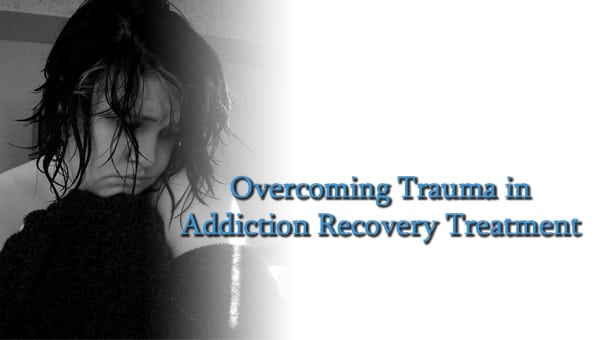Often the word “trauma” can be a dirty word. Many people that have suffered trauma are embarrassed or ashamed to discuss it, which can act as a barrier to them seeking or receiving necessary treatment. In addiction or substance abuse treatment, sometimes trauma is separated and compartmentalized as a separate issue from the substance use disorder.
However, it is absolutely imperative to realize that trauma is extremely impactful in relation to substance abuse and it is almost impossible to separate treating an addict or alcoholic without treating some form of trauma.
Finding help to treating trauma in your life
Here at MARC, we believe every patient and client that we treat is in need of some type of treatment and help related to trauma. Every addict or alcoholic has some form or fashion of trauma. Now the misconception that many people may have surrounding that idea is that trauma must represent a horrible or terribly negative situation, such as combat experience, horrific violence, sexual assault, rape or any other number of events that could scar a person, damage their emotional or physical well-being. This is often the case because the definition of the word trauma is “a deeply distressing or disturbing experience”.
The need to knows about overcoming trauma
What many people fail to realize as it related to addicts and trauma is that those people that suffer from addiction, alcoholism, substance use disorders or chemical dependency often also suffer from a deeply emotional state of being and a self-centered view of life and the world. Because of this, many times they will perceive many situations or events as deeply distressing or disturbing. Additionally, there is no baseline or hard and fast understanding of what is traumatic on an individual basis. What may be traumatic to one person may not be traumatic to another.
An example of this could be divorce. For a child, parental divorce could be a sad or depressing time that is dealt with and processed in a healthy manner while for another child, a parental divorce could be traumatic that could negatively impact them for years to come and pervade many areas of their life. The point is, no one can truly say what type of event or situation will end up causing harmful and lasting trauma, especially for those suffering from substance use disorders whose lifestyles and decisions often mean they will place themselves in dangerous, stressful or harmful situations that could ultimately lead to trauma.
Where does trauma come from?
Addiction is not necessarily caused by trauma, but trauma can certainly be the catalyst for substance abuse and there is no doubt that trauma can and will exacerbate addiction or alcohol abuse issues. Therefore, it is vital that treatment centers and addiction treatment professionals and substance abuse programs treat trauma hand-in-hand with addiction treatment. This doesn’t necessarily mean a separate trauma group or specific PTSD treatment, but it does mean that addiction treatment programs should be trauma-focused and incorporate trauma treatment for all patients.
The incorporation of therapy methods such Cognitive Behavioral Therapy (CBT), Eye Movement Desensitization and Reprocessing (EDMR) and Experiential Therapy are vitally important in every addiction treatment setting and should not simply be used for those patients that initially identify as suffering from trauma. Remember, addiction in of itself is a traumatic experience.
Need Help? Contact a Recovery Professional Today
If you or someone you know is in need of help because of drug and/or alcohol abuse or addiction, please give us a call. Maryland Addiction Recovery Center offers the most comprehensive dual diagnosis addiction treatment in the Baltimore County, Baltimore City and entire Maryland/Washington DC area. If we aren’t the best fit for you or your loved one, we will take the necessary time to work with you to find a treatment center or provider that best fits your needs. Please give us a call at (410) 773-0500 or email our team at Contact us today.
